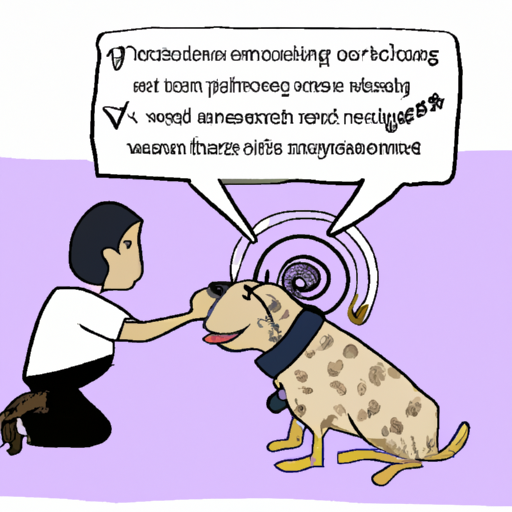As a caregiver, you surely understand the distress of watching your beloved pet suffer through seizures. In the following sections, we’ll explore some methods and strategies to help you prevent seizures in your dog.
1. Understanding Dog Seizures
Understanding the nature of seizures is the first step in helping your pet. Seizures occur as a result of abnormal electrical activity in your dog’s brain. They can be caused by various conditions, such as epilepsy, liver disease, brain tumors, or even exposure to certain toxins.
2. Seek Professional Veterinary Care
Your dog’s health should always be a priority. If your dog experiences seizures:
- Seek immediate veterinary care.
- Keep a record of the seizures, noting their frequency, duration, and any possible triggers.
- Discuss with your vet any potential underlying conditions that might be causing the seizures.
3. Make Dietary Changes
Certain diets can help control seizures in dogs. Consider the following:
- High-quality protein: Foods rich in high-quality protein can support brain function. Consider adding lean meats, fish, and eggs to your dog’s diet.
- Omega-3 fatty acids: These can help reduce inflammation in the brain and may help to control seizures.
- Avoid potential allergens: Some dogs may be sensitive to certain food ingredients, which can trigger seizures. Common allergens include wheat, corn, and certain meats like beef and chicken.
| Recommended Diet | Not Recommended |
|---|---|
| High-quality protein | Low-quality protein |
| Omega-3 fatty acids | Foods high in artificial additives |
| Fresh fruits and vegetables | Common allergens (wheat, corn, beef, chicken) |
4. Medication and Natural Supplements
Sometimes, dietary changes alone may not be sufficient to control seizures. In this case, your vet might prescribe medication. Additionally, some natural supplements may also be beneficial:
- Vitamin B6: It can help to control seizures in dogs.
- Taurine: This amino acid can support brain health and potentially reduce the frequency of seizures.
- CBD oil: Some studies suggest that CBD oil may reduce seizure frequency in dogs.
Remember, always consult your vet before starting any new supplement regimen for your pet.
5. Create a Stress-Free Environment
Stress can trigger seizures. Therefore, it’s essential to create a calm, comfortable environment for your dog.
- Maintain a routine: Dogs thrive on routine, so try to keep their feeding, exercise, and sleep times consistent.
- Provide a quiet space: Dogs may become stressed in noisy or chaotic environments. Make sure they have a quiet, comfortable space to retreat to.
- Show them love: Spend quality time with your dog. This can help to reduce their stress levels.
FAQs
Q: Can seizures in dogs be prevented?
A: While there’s no guaranteed method to prevent seizures in all dogs, strategies such as dietary changes, stress management, and regular veterinary care can help manage and reduce the frequency of seizures.
Q: Are seizures in dogs life-threatening?
A: Most dog seizures are not life-threatening. However, they can be a sign of an underlying health condition that needs to be addressed. If your dog has recurrent seizures, it’s important to seek veterinary care.
Q: Can diet really affect my dog’s seizures?
A: Yes, diet can play a significant role in managing dog seizures. High-quality proteins, omega-3 fatty acids, and avoidance of potential allergens can help control seizures.
Remember, every dog is unique, and what works for one might not work for another. Always consult with your vet before making any significant changes to your dog’s lifestyle or routine. Together, you can help your pet live a healthier, happier life.



